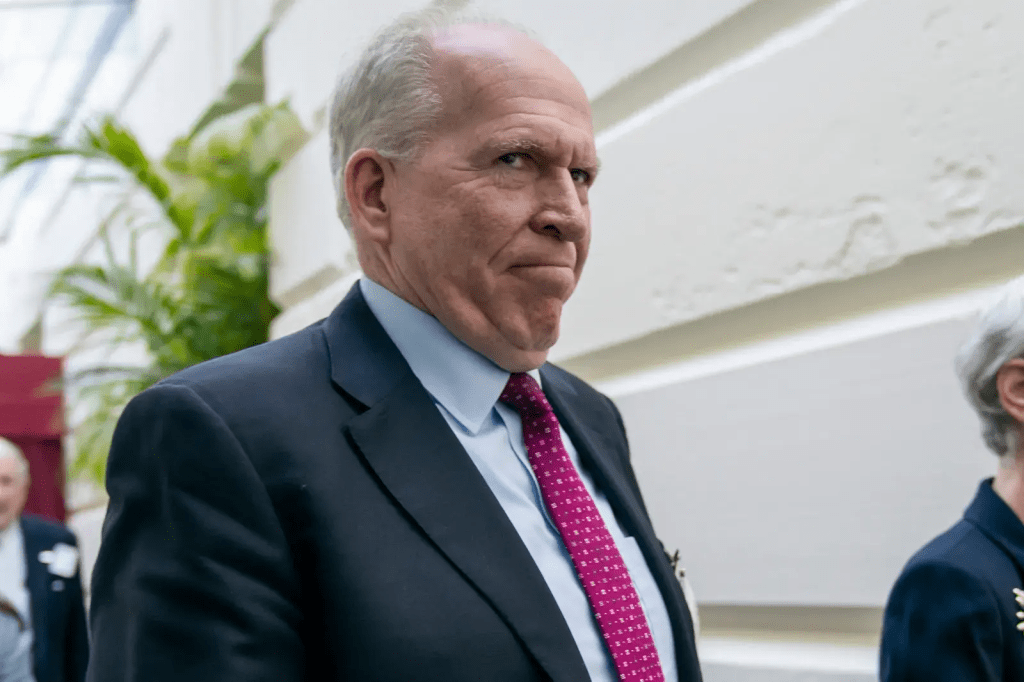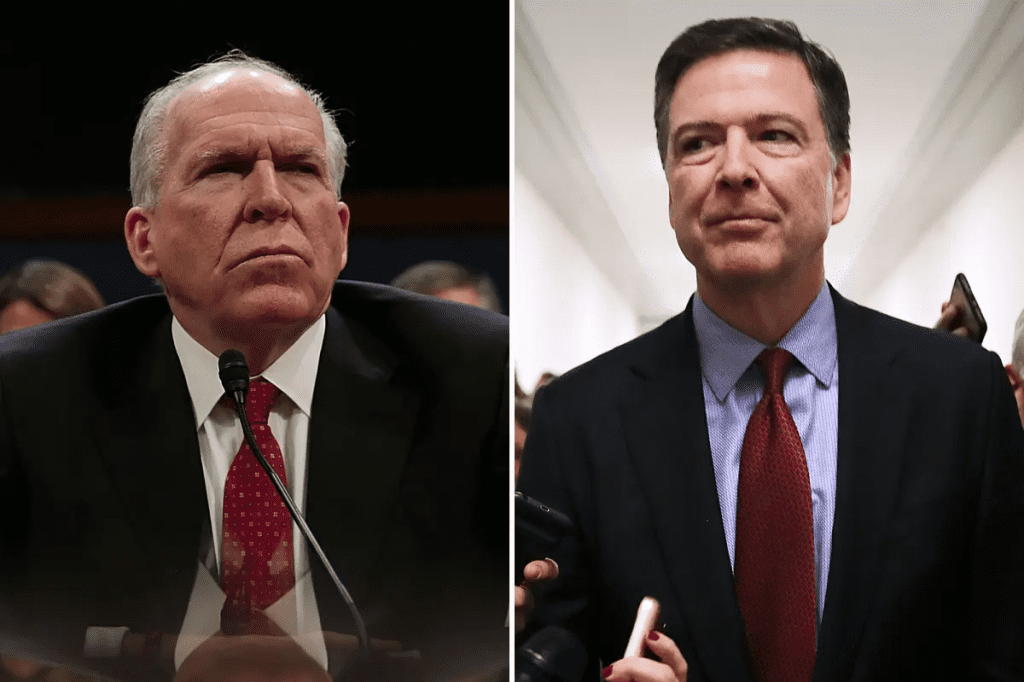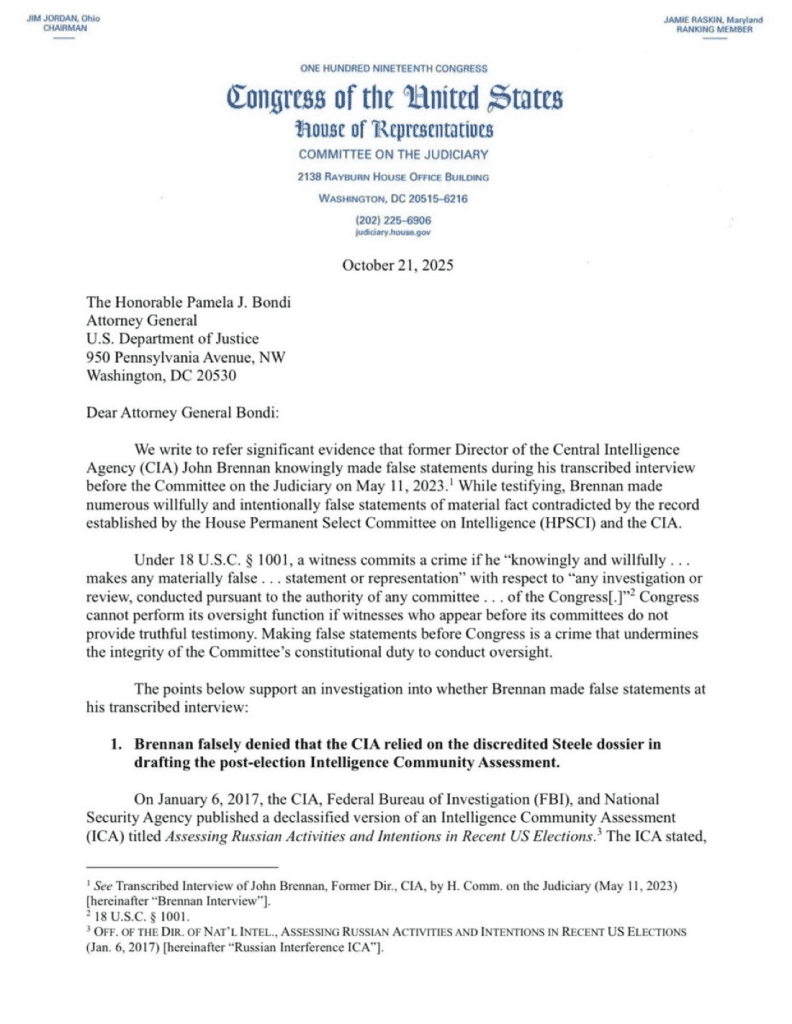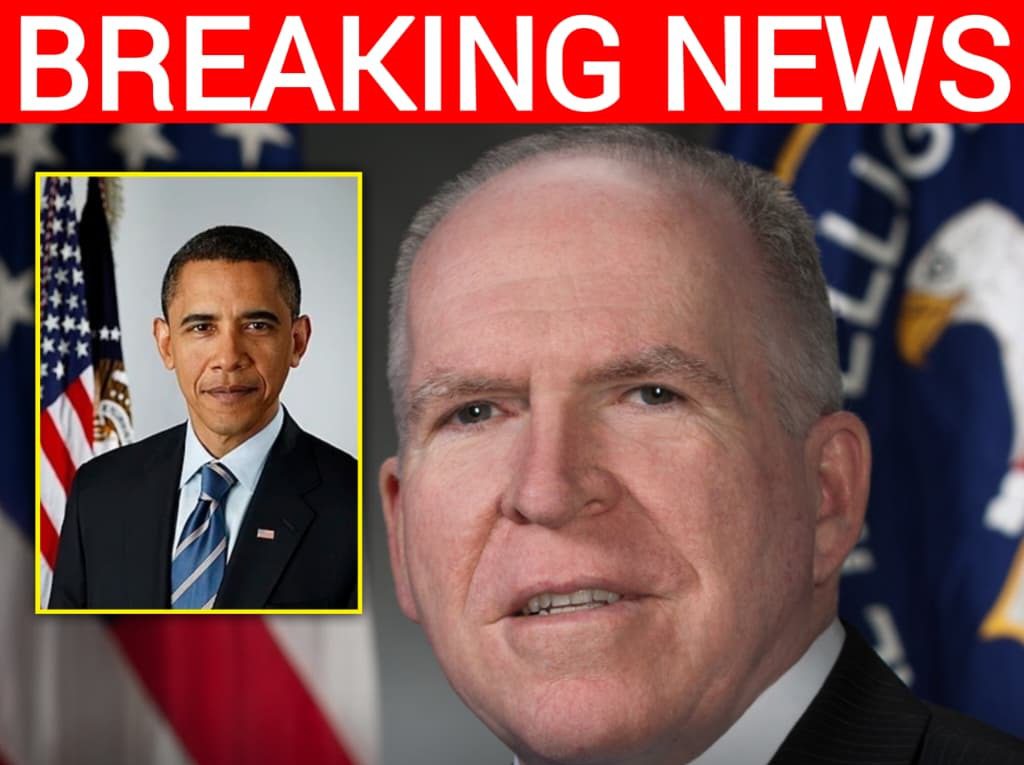House Committee Refers Obama’s Ex-CIA Director John Brennan for Potential Criminal Charges — Accused of Lying to Congress About Trump-Russia Intel
In a stunning turn that has reignited debate over the Trump-Russia investigations, former Obama-era CIA Director John Brennan has been formally referred to the Department of Justice for potential criminal prosecution. The referral, issued by the House Judiciary Committee, accuses Brennan of knowingly making false statements to Congress during a 2023 interview concerning the infamous Steele dossier and its influence on the 2017 Intelligence Community Assessment about Russian election interference.

According to the referral addressed to Attorney General Pam Bondi, newly declassified CIA records contradict Brennan’s sworn testimony, revealing that the Steele dossier — long dismissed as unreliable — was in fact incorporated into the intelligence community’s findings. That evidence stands in direct contrast to Brennan’s public assurances that the dossier “did not inform” the assessment. Lawmakers say the discrepancy is not a matter of interpretation but a deliberate falsehood, warranting investigation under 18 U.S.C. §1001, which criminalizes knowingly making false statements to Congress.
The development marks one of the most serious accountability efforts yet directed toward a senior intelligence official involved in the early Trump-Russia narrative. For years, conservatives have argued that top intelligence and law enforcement figures abused their authority in 2016 and beyond, weaponizing investigations to undermine Donald Trump’s presidency. Brennan, who led the CIA from 2013 to 2017, has remained one of the most vocal defenders of the Russia probe, often clashing publicly with Trump and his allies.

Now, that long-running clash has taken on a new dimension. The referral letter cites specific sections of Brennan’s 2023 testimony, comparing his statements with declassified internal CIA communications. Those documents, according to congressional investigators, clearly show that Steele’s material — including unverified claims later debunked — was circulated among intelligence analysts during the drafting of the 2017 assessment. The committee argues that Brennan’s repeated denials amount to perjury and demand prosecutorial review.
Reaction online was immediate and intense. Conservative commentators celebrated the move as long-overdue justice, with posts on X drawing thousands of views and comments within hours. Many called it a long-awaited “FAFO moment,” referring to the idea that years of misinformation are finally catching up with their architects. Supporters of Trump see the referral as a breakthrough in a broader campaign for accountability, especially after years of what they describe as selective justice and double standards across Washington’s institutions.

Still, a referral does not guarantee prosecution. The Department of Justice must now decide whether to pursue charges — a process that could take months. Historically, few congressional referrals of this nature have resulted in criminal indictments, particularly against high-profile former officials. Yet this case stands apart for its combination of declassified evidence, bipartisan frustration with intelligence overreach, and the continued public skepticism surrounding the origins of the Russia investigation.
The accusations against Brennan touch the core of public trust in America’s intelligence agencies. The Steele dossier, funded by political opponents of Donald Trump, was once touted as a key element of the Russia collusion narrative but later discredited by both media investigations and Justice Department reviews. If the DOJ determines that Brennan deliberately misled lawmakers about its use, it would mark a historic moment — potentially the first time a former CIA director faces legal consequences for statements tied to a politically charged investigation.

For Trump supporters, the referral represents more than one man’s potential prosecution — it’s symbolic of a broader reckoning. Many believe this signals a turning point where powerful figures who helped drive what Trump repeatedly called the “Russia hoax” may finally be held to the same legal standards as ordinary citizens. Whether or not charges are filed, the message from Congress is clear: no one, not even a former intelligence chief, stands above the truth.
As the Justice Department reviews the referral, Washington waits. For some, it’s an overdue step toward accountability. For others, it’s a political flashpoint that could reshape how the nation views its intelligence community — and how far it went in trying to stop Donald Trump.



